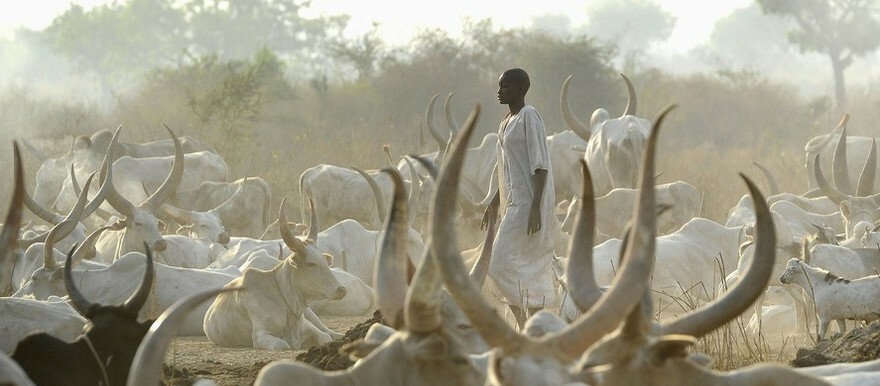Farmers in Wau County of Western Bahr El-Ghazal State have rejected the seasonal movement of herders and their cattle to their county which is expected to start from 5 January 2022.
The decision was revealed during the closing of a three-day interstate pre-seasonal cattle movement conference at the Peace Hall in Wau between Western Bahr El-Ghazal and Warrap states.
Emilio Ulau Bagari, the Paramount chief of Wau County, told Radio Tamazuj during the conclusion of the meeting that they rejected the resolutions of the conference for four main reasons.
“We have been for the cattle movement conference for three days with Warrap State and all our neighbors and we came from the three Payams of Wau County; Bagari, Besselia, and Bazia, and as Wau County, we rejected cattle to move to our land for the four main reasons,” Chief Ulau said.
He said that the presence of cattle creates problems because if the cattle keepers kill a person it automatically leads to clashes which they want to avoid.
“Secondly, the presence of cattle can destroy our land and grass will not grow normally,” Chief Ulau said. “Thirdly, if we accept to pay taxes to cattle keepers, they can enter your firms and you can say anything because you paid him money and this will automatically create a dispute between the chiefs and local communities because they will think their land was been sold to the cattle keepers.”
He added that the herders often breach agreements and that those who attended the conference are not the real cattle keepers which will make it hard to enforce any of the resolutions.
The youth representative of Jur-River County at the conference, Agiu Athuai Agiu, said they accepted to host the cattle keepers in their areas on three conditions.
“Yes, it is well known that we two counties which usually host the cattle in Western Bahr El-Ghazal S are Jur-River and Wau County,” Agiu said. “We have agreed to allow the cattle to come to our areas based on three conditions. One, no cattle keepers should come with guns. Secondly, the youth or children are not allowed to move with the cattle. Thirdly, we should respect the Marial Bai Agreement to avoid any clashes. Those of Wau have made it clear that they do not want cattle across their areas for the reasons they gave.”
For his part, the representative from Warrap State, Luka Wol Mathiang, confirmed the decisions taken by the farmers in Wau County and said they will continue discussions to reach an amicable agreement before the cattle migration starts.
“Yes, it is true, but I observed as a participant that what they said is not because they do not want cattle to reach their areas. They want us to improve our going there with the cattle not because they do not want cattle there,” Wol explained. “We are going to inform them before moving there and when we reach we will be there with them according to their wishes. They are the ones to direct us on what to do so that we have peace.”
Meanwhile, the deputy governor of Western Bahr El-Ghazal State, Zachariah Joseph Garang, appreciated the partners who supported the conference to evaluate the past year’s cattle migration and said the conference was not only to resolve the differences between herders and cultivators but to reconcile the two groups.
“The annual conference we conduct here is to evaluate ourselves and put new strategies on how we should move forward,” Deputy Governor Garand said. “This conference is not only to resolve differences between cattle keepers and agriculturalists but also is to bring reconciliation between the two communities for the sake of peaceful next season.”
The interstate pre-seasonal cattle movement conference is an annual event organized every year to revise the implementation of the Marial-Bai Cattle Migration Agreement between Western Bahr El-Ghazal and Warrap State.
The theme of this year was; “Together for a peaceful and safer cattle seasonal movement under the auspices of the two governors for WBG and Warrap state”.




